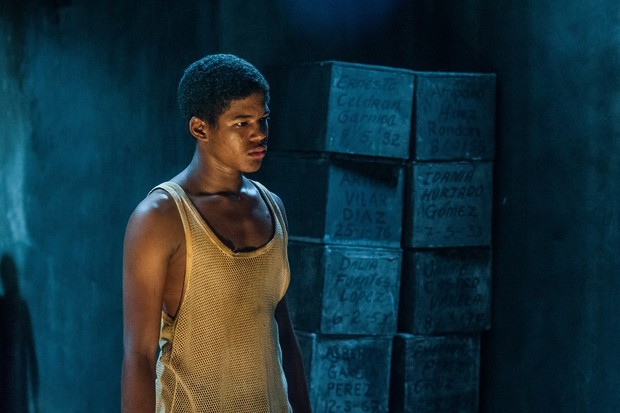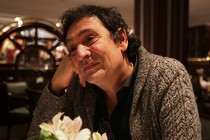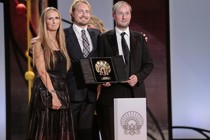SAN SEBASTIÁN 2015 Competition
The King of Havana: Far from a postcard
- SAN SEBASTIÁN 2015: Majorcan director Agustí Villaronga is back with a hard-hitting adaptation of Pedro Juan Gutiérrez’s novel of the same name, shot in Santo Domingo but with Cuban actors

When a person lands in Cuba, they can avoid the real, day-to-day life of the island by holing themselves up in a European resort in Varadero. But if the visitor really wants to get to know deepest Havana, they must steel themselves in order to plunge into the overwhelming squalor of its neighbourhoods, as they wander through the dilapidated parts of the city. You come out of there a changed person: what you see, hear and breathe is very far removed from the idyllic photographs to be found in the catalogues that they shove under your nose in the travel agencies. With The King of Havana [+see also:
trailer
film profile], world-premiered at the 63rd San Sebastián Film Festival, Agustí Villaronga, who has already submerged us in the nausea of post-war Catalonia in Black Bread [+see also:
trailer
film profile] (winner of nine Goya Awards and the Silver Shell for Best Actress for Nora Navas at San Sebastián in 2010), invites us to immerse ourselves in the poverty that many people do not care to see – and that others prefer us not to see – of this mighty and fascinating Caribbean island.
In order to achieve this, he has taken the novel of the same name by Pedro Juan Gutiérrez and has adapted it, infusing it with something of his warped perspective, but without any of the boldness or originality of his older titles In a Glass Cage, The Sea and Moon Child, like someone who has reluctantly taken on a job offered by its producer, Luisa Matienzo. The movie starts off with some animated opening credits that prepare us for something akin to laughter and joie de vivre, but the initial scenes are already unsettling, as they show violent deaths with such flippancy that the movie seems to be leading us through a picaresque tale in which humour will be just as important as tragedy. This lack of definition remains constant throughout the film, and the resulting onslaught of aggression and putrefaction will wipe any possible attempt at a smile off our faces. In addition, the main characters do not manage to endear themselves to the audience, even if we do comprehend their desperate actions to survive in a world as hostile as this.
And so The King of Havana follows the trail of Reinaldo, a teenager who escapes from a correctional facility and wanders the island in the late 1990s: there, he makes the most of the more-than-ample manhood that nature has bestowed upon him to have sex with a woman, he shacks up with a woman who is a prostitute for old men, and he strikes up something approaching a romance with a transvestite neighbour. This sexual jubilation, which is not without its fair share of jealousy, is one of the most famous ingredients of this unbridled and gritty portrait of marginality and amorality.
This co-production between Spain (Pandora Films and Tusitala) and the Dominican Republic (Esencia Films), whose sales are managed by Filmax International, could not be filmed in Cuba, as the authorities there refused to authorise the shoot (read more). However, the result is far from being an accessible and understandable film, as that string of wretched episodes, shot far too crudely and wallowing excessively in filth, end up consuming everything and generating the opposite effect to what was intended: we merely feel exhausted as we uninterruptedly observe all the humiliation, starvation and mischief, without getting even a single breather for a touch of humour, as we had been promised at the start. But one thing is for sure: we have got to know the profound reality of Cuba, albeit shot on a neighbouring island, but with actors with perfect Havana accents.
(Translated from Spanish)
Did you enjoy reading this article? Please subscribe to our newsletter to receive more stories like this directly in your inbox.


























